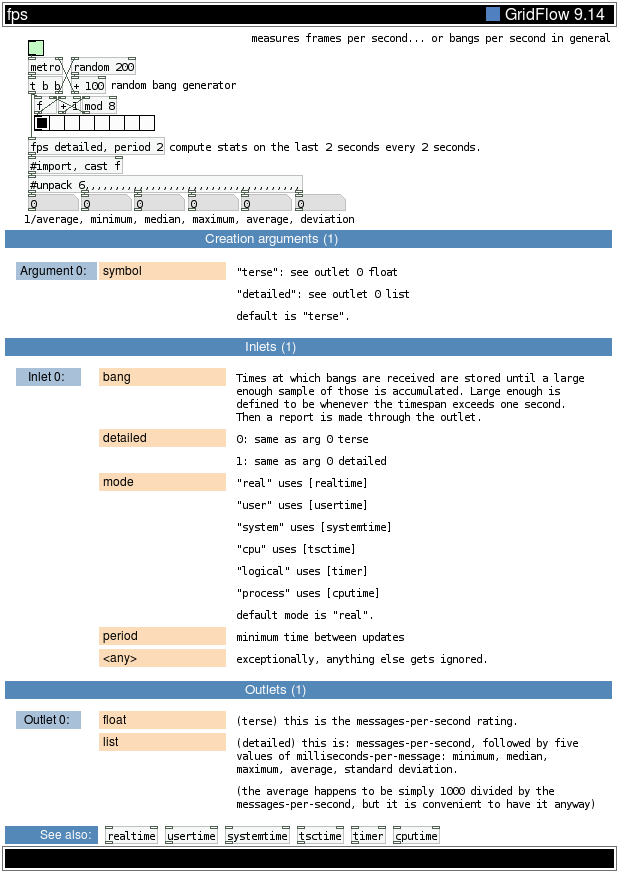
"logical" uses [timer] "process" uses [cputime] "cpu" uses [tsctime] "real" uses [realtime] "user" uses [usertime] "system" uses [systemtime] Times at which bangs are received are stored until a large enough sample of those is accumulated. Large enough is defined to be whenever the timespan exceeds one second. Then a report is made through the outlet. exceptionally, anything else gets ignored. (terse) this is the messages-per-second rating. (detailed) this is: messages-per-second, followed by five values of milliseconds-per-message: minimum, median, maximum, average, standard deviation. (the average happens to be simply 1000 divided by the messages-per-second, but it is convenient to have it anyway) "detailed": see outlet 0 list "terse": see outlet 0 float 1: same as arg 0 detailed 0: same as arg 0 terse minimum time between updates measures frames per second... or bangs per second in general 1/average, minimum, median, maximum, average, deviation random bang generator compute stats on the last 2 seconds every 2 seconds. default mode is "real". default is "terse".